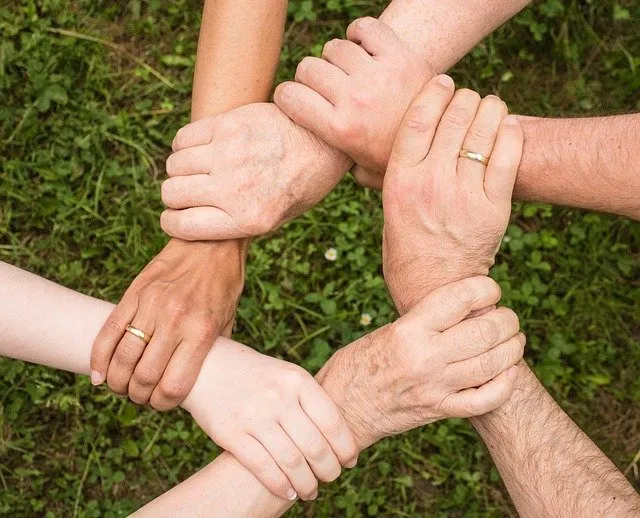Involved In An
Adoption? Always
Assume The Best
Dec 4, 2019 | By: Hope for the Journey

Being part of an adoption is like suddenly being married into an extended family without a spouse to help teach you about the family dirt. You have to make a lot of assumptions in adoptions, and this can be very tricky. You don’t know who is mad at whom. You don’t know which side you should be on. In the beginning, you don’t even know who roots for what football team. Imagine innocently starting a conversation about Thursday’s game. You’re trying to make small talk, but suddenly realize the other person absolutely hates that team. Or what about if you compliment someone only to realize you are talking to someone in a feud with the other person? Awkward!
This is just a few of the issues that come up. Many times, there are huge differences between the birth family and the adoptive family. They might come from different walks of life. Each family is going to have its own history, heartbreaks, and limitations. So, more often than not, you are forming a forever relationship without people you do not know–especially at the beginning.
Assumptions Are All Too Easy In Adoptions
Because you have so little information, it can be easy to make assumptions. For instance, let’s say the birth mother has gone silent and is not returning phone calls. You might think she does not care. Or maybe you think an adoptive mother is controlling because she has every minute of a visit planned out. But what if that birth mother is overwhelmed with grief every time she sees her child. What if she does not want this to be confusing for him/her? Or what if the adoptive mother is super nervous and anxious for the birth mother’s approval. So, she has spent days planning and trying to make everything perfect?
Assumptions Can Be Powerful
You see, our assumptions instantly create feelings towards other people. Make no mistake, these feelings can be powerful. When we assume something bad, we feel anger and resentment. We tend to become reactive or closed to that person. However, when we assume something better, we are more open to that person. We tend be more sensitive and to listen better.
Over time, these assumptions, whether positive or negative, begin to shape how we see other people and how they see us. For example, let’s say you haven’t called in a while. I assume you don’t care. So, I am less likely to reach out to you. When you do call, I might be a little prickly. Well, if you haven’t called because, maybe, you feel insecure and I’m prickly, then this will only reinforce that you shouldn’t call. Over time, this will only get worse.
If You’re Going To Assume, Always Assume The Best
But let’s say that you haven’t called in a while, and I assume the best. I think, Maybe you have been busy or you are trying to respect our time together as a family. Or perhaps I realize that calling brings up a well of emotions and maybe you are feeling overwhelmed. Now I’m feeling warmly towards you. I am more likely to reach out myself. Or when you do call, I am open and more likely to show you love and compassion.
And here’s the thing…when we assume the best, we get the best out of people even when they are not at their best. Take my example above and let’s say you really had flaked out or were angry. If I am open and loving and compassionate when you call, you are more likely to open up. We have the possibility of connection now. Our relationship can build even when we are not perfect.
The Take Away
Adoption–especially open adoption–is a wild world of relationship challenges. But one easy and powerful step you can take today to make your adoptions better is simple: Always assume the best. I promise, it will improve even the worst of situations. What examples do you have of assuming the best? Let us know in the comments!
Hope For The Journey is a counseling group in Austin and Round Rock, Texas. We specialize in helping kids, adults, parents, and partners to survive and thrive after traumas, especially sexual traumas. Adoption, while at times beautiful, always carries pain and grief for all members of the triad. Our owner, Traci W. Pirri, has extensive personal and professional experience working with adoption and helping individuals and families to heal and grow.
